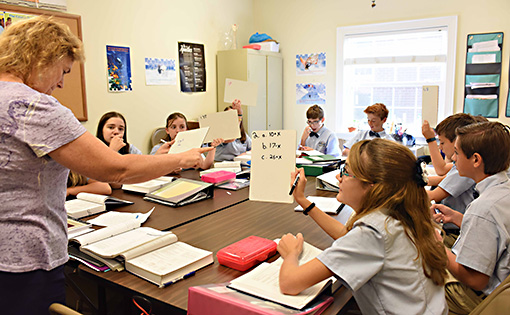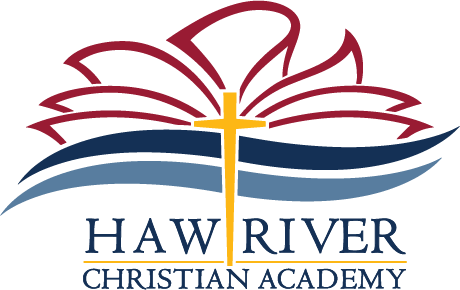Logic School (7th - 9th)
The Logic phase involves ordering facts into organized statements and arguments. During the middle school years, children are beginning to think independently. They often develop a propensity for argument. Classical education teaches children to graciously argue well. The study of formal logic helps students understand the fundamentals of a good argument. Practice in making written and oral arguments helps to further develop these skills. Teachers encourage the use of argumentation in each subject. Again, each subject has its own logic. In science, we use the development and testing of hypothesis. In math, we develop a student’s ability to logically orient numbers through the more abstract concepts of algebra and trigonometry.


Logic age students, or middle schoolers, are naturally inclined to question ideas and make arguments. The Socratic method is used to discuss, dissect, debate, and defend what they read, analyze, interpret, question, and determine in light of God’s truth, goodness, and beauty. Every subject has its own logic. The Logic stage makes strong connections, like mortar, with the building blocks from grammar school, to form an understanding that prepares students for the next level of the Trivium.
Developmental Traits:
- Acts as though they know more than adults
- Curious about the why for most topics
- Critical & enjoys debates
- Likes to organize
- Shows off knowledge
- Still engaged in learning, but needs challenges
- Wants to know “behind the scenes” facts
Classical Tools:
- Debates
- Drama, re-enactments, & role playing
- Evaluate and critique (with guidelines)
- Formal logic
- Guest speakers
- Oral & written presentations
- Overnight tours or day trips
- Persuasive reports
- Research projects
- Time lines, charts, maps

